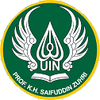Halal Tourism: The Existence of One Village One Product-Based Cultural Tourism Development in Banyumas Regency
DOI:
https://doi.org/10.24090/wealth.v1i1.7002Kata Kunci:
halal tourism, cultural tourism, ovopAbstrak
This study aims to identify the prospects and existence of cultural tourism in Banyumas Regency with the concept of One Village One Product (OVOP) halal tourism. This is done because the halal concept has now become a lifestyle for most Indonesian people. This type of research is library research, which is defined as the acquisition of data and information from library sources, such as books, studies, journals, and other reading materials relevant to the subject of this research. The study was conducted in Banyumas Regency and explained the concept of “one village, one product”. The survey results show that Banyumas Regency has enormous tourism potential, and there are opportunities to integrate the concept of OVOP-based halal tourism into Banyumas tourism, especially the development of cultural tourism, because Banyumas is known as a national hero city. Regions must have and develop their own unique identity that other regions do not have. This difference will increase the number of tourists visiting. This concept can be an example or role model for other regions in the management and development of halal tourism in the future.Referensi
Adinugraha, HH, Sartika, M., & Kadarningsih, A. (2018). Halal Tourism Village: Concept And Its Implementation In Indonesia. Human Falah , 5 (1), 28–48.
Andriani, D. (2015). Preliminary Report of the Study on Sharia Tourism Development . Jakarta: Ministry of Tourism of the Republic of Indonesia.
Ariefana, Pebriansyah. (2022, February 21). "Number of Islands in Indonesia along with Big Island and Small Island". Published from joga Suara.com at 16.10 WIB.
Asriady, I. (2016). Development Strategy for Bissapu Waterfall Tourism Object in Bantaeng Regency. Thesis (Unpublished). Makassar: UNHAS.
Battour, M. & Ismail, MN (2016). Halal Tourism: Concepts, Practices, Challenges and Future. Tourism Management Perspectives , 19, 150-154.
Crescent Rating. 2019. “Indonesia Muslim Travel Index (IMTI) 2019”. Accessed from https://www.crescentrating.com
Djakfar, M. (2017). Halal Tourism Multidimensional Perspective Roadmap to Halal Academic and Industry Development in Indonesia . Malang: UIN MALIKI PRESS.
Fatkurrohman. (2017). Developing Yogyakarta's Halal Tourism Potential for Strengthening Islamic Economy in Indonesia. AFKARUNA Journal Vol. 13 No. June 1st.
Garit Bira Widhasti., et all. (2017). Public Diplomacy of the Government of the Republic of Indonesia Through Halal Tourism. Journal of Solidarity: Social Sciences, Vol. 1, No. 1 (8).
Hiramatsu & Morihiko. (2009). Opening Speech OVOP International Seminar in Bali, Indonesia.
Ministry of Finance. (2019). "Indonesia Becomes the Best World Halal Tourism Destination 2019". Accessed from https://www.kemenkeu.go.id
Mahardhani, AJ, & Cahyono, H. (2017). Harmony of Tradition Society in the Framework of Multiculturalism. Asketi K: Journal of Religion and Social Change, 1(1).
Martoyo. (2016). Locus & Focus of Public Administration Science . Fam Publishing.
Murayama, H., Dua, N., & City, D. (2009). A Case Study Archive of OVOP for Regional Development. In The 6th OVOP International Seminar, Bali-Indonesia.
Government Regulation of the Republic of Indonesia Number 50 of 2011 concerning the National Tourism Development Master Plan 2010-2025.
Pratiwi, F. (2016, April 20). "GMTI Becomes the Reference Criteria for Halal Tourism". Retrieved from republica.co.id.
Primasari, A., & Siswojo, T. (2012). Promotion of Local Culinary as a Selling Power of Indonesian Tourism for Foreign Backpackers. Visual Communication Design , 1(1).
Situmorang, Hendro D. (2014, October 17). "Hospitality, an Important Key to Improve the Tourism Industry". Published from beritasatu.com at 07.40 WIB.
Sugiyono. (2017). Business Research Methods: Quantitative, Qualitative, Combination, and R&D Approaches . Alphabet.
Assistant Team of Deputy for Research and Development of Tourism Policy, Deputy for Tourism Institutional Development, Ministry of Tourism. (2015). Sharia Tourism Development Study .
Trianton, Teguh. (2014). Anthropological Functions of the Saka Tunggal Mosque (Ethnographic Studies of Muslims from Aboge Banyumas). Journal of Islamic Culture , B accredited. 12 (1), STAIN Purwokerto.
Yalina, N., Kartika, AP, & Yudha, ATRC (2020). Impact Analysis of Digital Divide on Food Security and Poverty in Indonesia in 2015-2017. Journal of Technology Management , 19 (2), 145–158. https://doi.org/http://dx.doi.org/10.12695/jmt.2020.19.2.3
Unduhan
Diterbitkan
Cara Mengutip
Terbitan
Bagian
Lisensi
Hak Cipta (c) 2022 Sochimin

Artikel ini berlisensi Creative Commons Attribution 4.0 International License.





